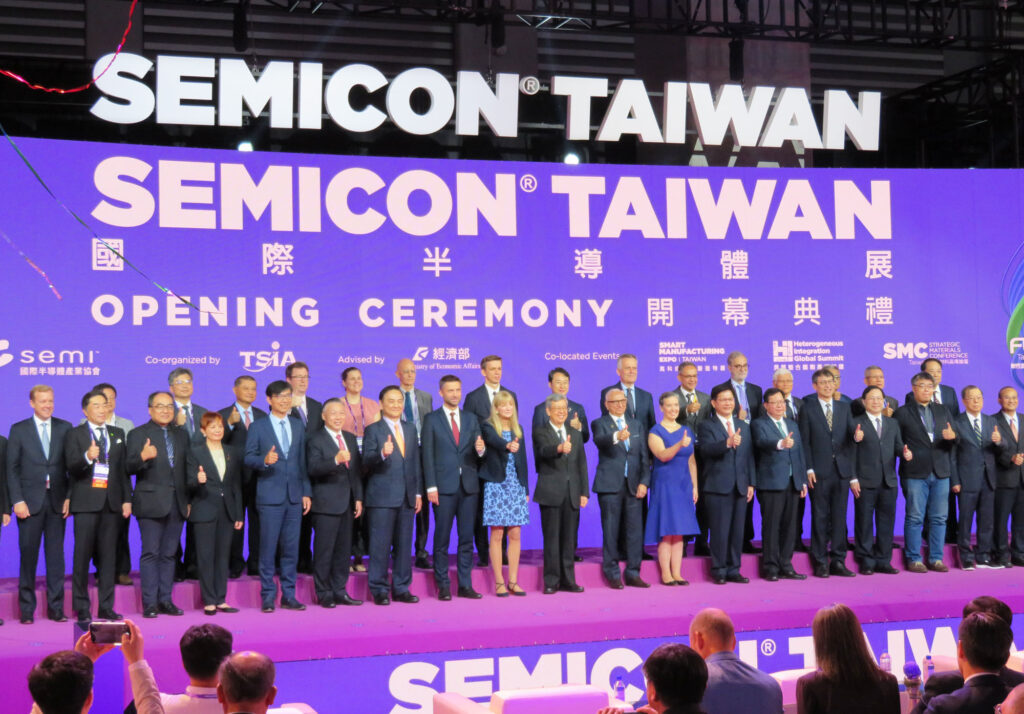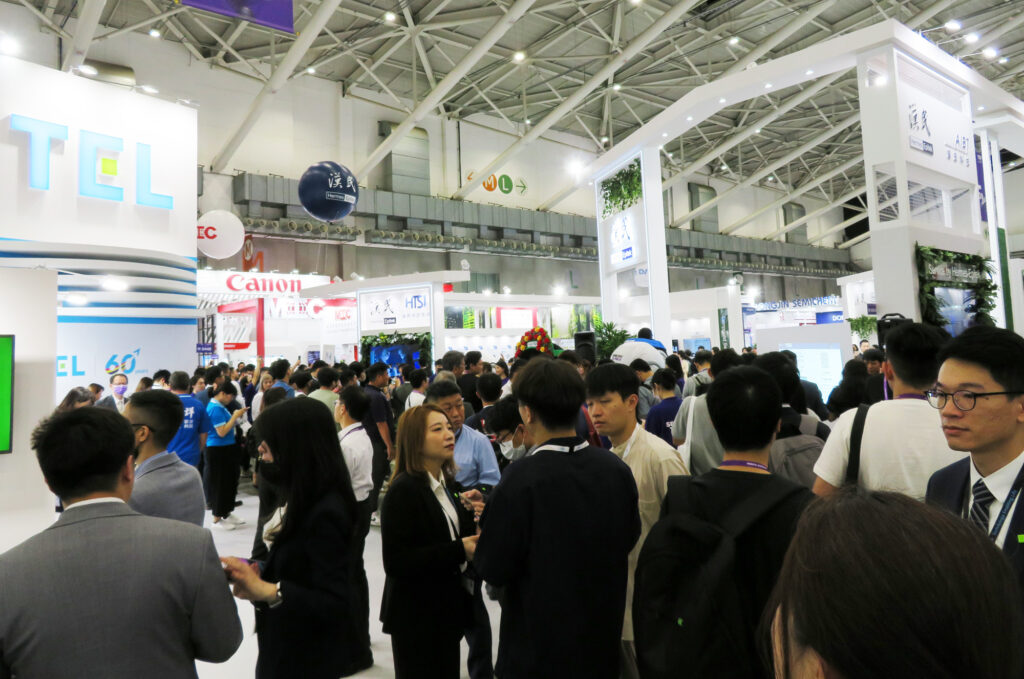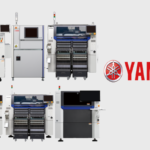ASIA ELECTRONICS INDUSTRYYOUR WINDOW TO SMART MANUFACTURING
Novel Technologies to Drive Future IC Manufacturing
Asia’s largest trade event for semiconductor manufacturing equipment, SEMICON Taiwan 2023, concluded its three-day run in Taipei last week, painting a rosier picture of the industry in the years to come.
The annual event was able to gather under one roof vital movers and shakers of the semiconductor industry. Most importantly, the players were able to track the future of leading-edge semiconductor manufacturing technologies, including advanced logic devices and memories, power semiconductors, and microelectromechanical systems (MEMS). This year, the three-day event attracted a record-high 950 companies and over 50,000 visitors.

Overcoming Industry Challenges
The 2023 edition of SEMICON Taiwan carried the theme “Inspire Innovation. Empower Sustainability” and highlighted leading-edge technologies and trends. Hence, a record-high number of companies took part in the event.
In recent years, SEMICON Taiwan only used Hall 1 of Taipei Nangang Exhibition Center. However, this year, organizers of the event expanded the exhibition space up to Hall 2.
Meanwhile, advanced semiconductors that support generative artificial intelligence (AI) have been gaining ground. Early on, discussions on technological development focusing on next-generation architectures, such as gate-all-around (GAA), have been up and about.
Addressing the audience at the opening ceremony, Ajit Manocha, President and Chief Executive Officer of SEMI, said, “Innovations such as generative AI are occurring. On the other hand, however, we face many problems, such as climate change and supply chain disruption. I hope companies and organizations collaborate at this year’s SEMICON Taiwan to overcome these challenges together.”

This year, exhibition themes focused on the latest technological trends. These themes are (1) advanced manufacturing; (2) heterogeneous integration; (3) compound semiconductors; (4) auto chips; and (5) smart manufacturing. In addition, focused topics also included (6) material innovation; (7) semiconductor cybersecurity; (8) sustainability; (9) workforce; and (10) quantum. Simultaneously, organizers of SEMICON Taiwan also held over 20 forums that zeroed in on these themes.
Nonetheless, the present global semiconductor market is reeling from the reduced demands for smartphones and personal computers. Thus, contributing to a stagnated outlook.
Eyes Market Recovery
Clark Tseng, Director of Industry Research and Statistics at SEMI said, “Looking at sales of ICs in the first half of 2023 (January to June), sales of logic devices dropped 25 percent from the same period of the previous year. Furthermore, sales of memories fell more than 50 percent year-on-year. Although sales will continue to decline in Q3 (July to September) compared with the same period of the previous year, they will increase to about 6 percent from Q2.”
In addition, Tseng said, “Factory operation rate will also improve. The market landscape will recover from the beginning of 2024. In 2024, the semiconductor manufacturing equipment market will also increase 8.2 percent on the year, with the market scale recovering to US$100 billion.”
A bleak market environment is prevailing in the foreground of this year’s SEMICON Taiwan. Nonetheless, the Taiwanese semiconductor industry’s growth strategies have been laid out to mitigate impacts. At present, Taiwan leads the world in semiconductor manufacturing technologies. Going forward, the country will focus on strengthening semiconductor design technologies along with leading-edge semiconductor manufacturing.
At the opening ceremony, Chen Chien-jen, Premier of the Republic of China, said, “Moving forward, leading-edge technologies, such as generative AI, will become widespread. Amid the developments, leading-edge semiconductor manufacturing technologies stay important, and the government will support them. In addition, it is necessary to have technologies take up the needs of a wide range of industries. Looking ahead to 10 years, Taiwan will focus on the support of IC design houses, nurturing of design engineers, and the development of software that achieves automation of design, such as electronic design automation (EDA).”
Government-led Plan from Next Year
Accordingly, the Taiwanese government will launch a plan in 2024 to strengthen semiconductor design technologies. The plan sets five years as an implementation period. Particularly, it aims to boost the country’s share of the global semiconductor design market from the present 20 percent to 40 percent in 10 years. Moreover, it will target an 80 percent share in advanced semiconductor manufacturing.
SEMICON Taiwan drew many Japanese companies as well. They include Tokyo Electron Limited, DISCO Corporation, Lasertec Corporation, Toray Engineering Co., Ltd., Taiyo Nippon Sanso Corporation, SINFONIA Technology Co., Ltd., KOKUSAI Electric Corporation, HORIBA, Ltd., Tamura Corporation, AGC Inc., and TDK Corporation.

